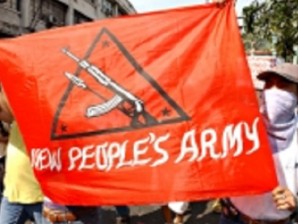NPA rebels warn candidates
MANILA, Philippines – The New People’s Army rebels warned politicians Monday to seek their permission before campaigning in the insurgents’ strongholds following an ambush that wounded a town mayor and killed two of her aides.
Communist guerrillas launched an attack with grenade launchers on a convoy carrying Ruth Guingona, the 78-year-old mayor of Gingoog on Saturday, killing two of her aides and leaving her and two policemen wounded.
Gingoog lies in a remote, mountainous area in the southern island of Mindanao where the rebel group has been fighting the government since 1969.
Jorge Madlos, a spokesman for the NPA, told AFP it would continue to man checkpoints to “impose revolutionary policies” on candidates for the May 13 local elections.
“They should secure permission and coordinate with our local forces when entering our area, and they should also not have armed escorts,” he added.
Article continues after this advertisementMadlos said Saturday’s ambush was unfortunate, but stressed that Guingona, a member of President Benigno Aquino’s ruling party, had been previously warned that entering rebel areas with armed escorts could touch off violence.
Article continues after this advertisement“Our fighters are calling politicians on the phone to inform them we are serious in implementing our policy,” Madlos said.
“They are free to campaign in our areas, but they should first coordinate with us.”
The military has accused the communist guerrillas of extorting money from politicians in exchange for letting them campaign.
The NPA is the armed wing of the underground Communist Party of the Philippines, which has been fighting the government since 1969.
The military estimates it has about 4,000 fighters nationwide, down from more than 26,000 at its peak in the 1980s.
The attack came less than a month before local elections in May, when more than 18,000 posts are at stake, from town mayors and governors to members of congress.
In 2011, the military said the rebels earned at estimated 300 million pesos ($7.3 million) in illegal “revolutionary taxes” collected from individuals and businesses.
